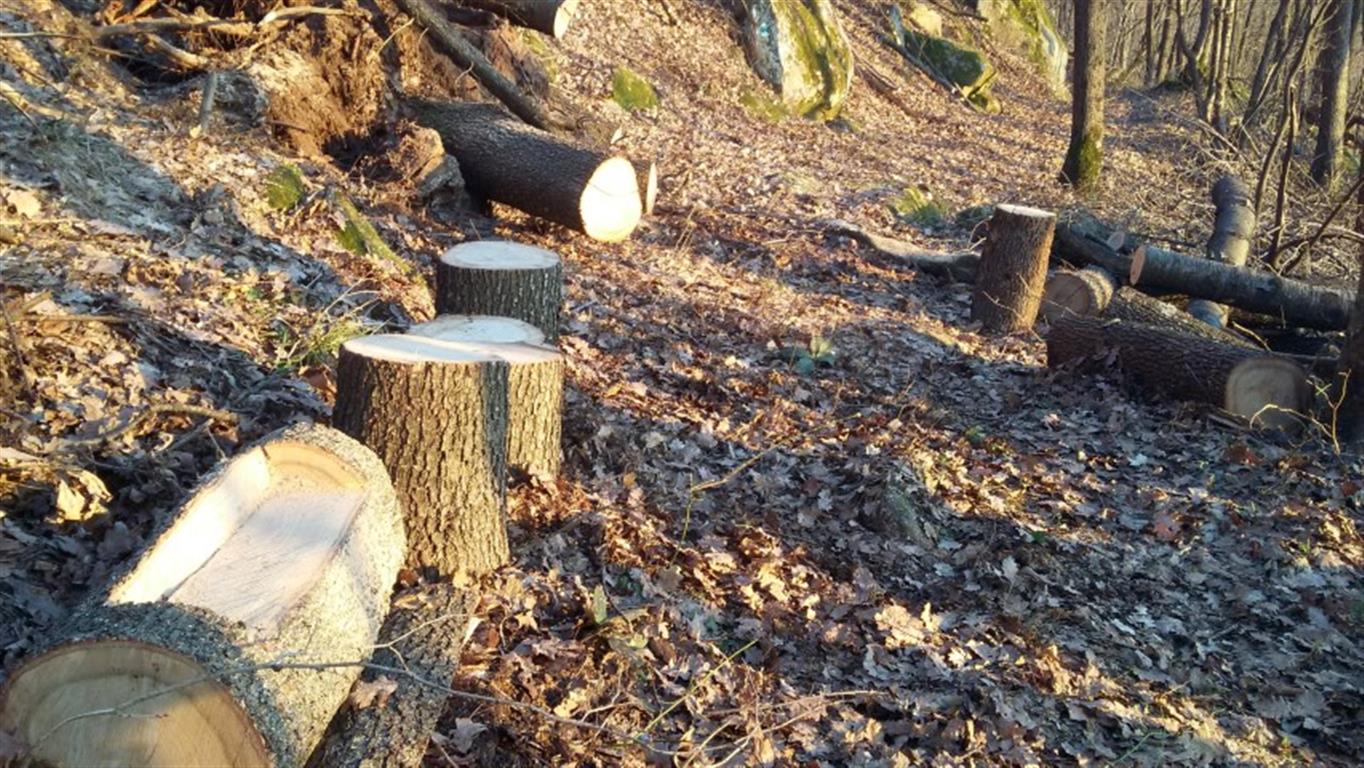Bulgarian forests are a huge natural treasure that continues to be reason for national pride in this country. Efforts aimed at preserving this treasure started long ago and continue to this day. But what are the recent threats to Bulgarian forests? We met engineer Alexander Dunchev – expert in WWF who is responsible for protection of century-old forests and improving existing laws.
“The forest is not just a source of raw material for the industry and forests do not have just economic importance. At the same time economic interest towards the Bulgarian forests grows. Every year half a million cubic meters of wood more are harvested from Bulgarian forests. This comes at the expense of other functions of the forest – social and environmental. Social function is also the ability to develop tourism. Very often tourist associations or ordinary citizens are those who signal over mass felling in forests that are traditionally used for tourism.”
 Bulgarians say forests in this country are felled en masse and in 2015 this created conditions for the society to call for a moratorium on export of Bulgarian wood. Bulgaria exports raw wood and even firewood to neighboring countries and this controversial practice led to the ban. It was lifted after law changes aiming at better transparency and increased civic control were adopted. The intensity of felling was reduced and some simple measures that include installing GPS systems on trucks and a ban on felling and transporting wood during the night were adopted.
Bulgarians say forests in this country are felled en masse and in 2015 this created conditions for the society to call for a moratorium on export of Bulgarian wood. Bulgaria exports raw wood and even firewood to neighboring countries and this controversial practice led to the ban. It was lifted after law changes aiming at better transparency and increased civic control were adopted. The intensity of felling was reduced and some simple measures that include installing GPS systems on trucks and a ban on felling and transporting wood during the night were adopted.

Mr. Dunchev warns that despite stricter rules, very often control bodies cover up violations as they become subject of extreme political and corruption pressure. Environmentalists also call for increasing the responsibility that owners of logging companies bear.
In recent years it has become obvious that illegal felling and exploitation of nature bring dire consequences varying from great floods and landslides to drought and polluted water, which affect the whole of society. Forests in Bulgaria suffer from environmental problems too. In 2015 extreme weather and fires caused serious damage to this Bulgarian treasure, experts report.
Studies show that protecting forests is the most important environmental cause for Bulgarians. Dialogue between environmental organizations and state institutions has been intensifying and this has led to the possibility for conducting joint inspections in forests, aiming at reducing manipulation of results. There are also joint projects like those for protecting century-old forests. WWF have already mapped 25,000 hectares of the last remaining old forest in Bulgaria, outside protected areas. A public platform gis.wwf.bg has also been created and there anyone can find the location of a given forest. Then in the web site of the Bulgarian Executive Forest Agency one could see if permission for felling existed for that forest. Citizens could also signal about violations and illegal felling in Bulgarian forests on telephone 112 and law changes also allow citizens to participate in making the regional forest management plans.
Anyone can help in protecting Bulgarian forests. Being better informed and wanting more transparency in their management and use are an initial step.
Bulgarian scientists in Antarctica traditionally celebrate the New Year several times, depending on the presence of foreigners in the base, the head of the Bulgarian Antarctic Expedition, Prof. Dr Christo Pimpirev, told BNR Burgas. One of the..
Bulgarians' assessments of the past year in personal terms differ sharply from their views on the situation in the country and the world , according to a nationally representative survey conducted by polling agency Alpha Research between December 1 and..
For the fifth consecutive year, the Sketches of Sofia initiative have delighted Sofia's residents with gifts placed at the city's statues . Every year, photographer Ivan Shishiev and his wife buy books for Sofia residents, wrap them up and place them at..

+359 2 9336 661
